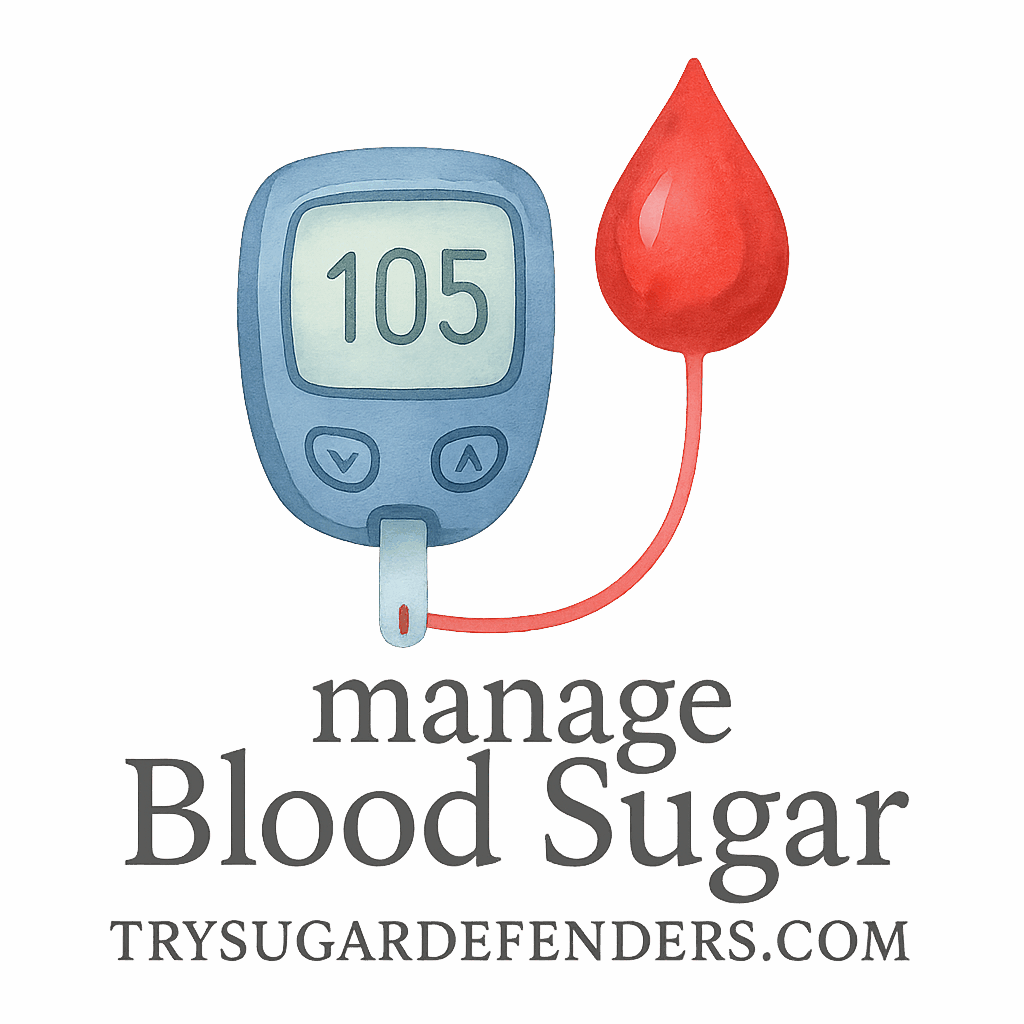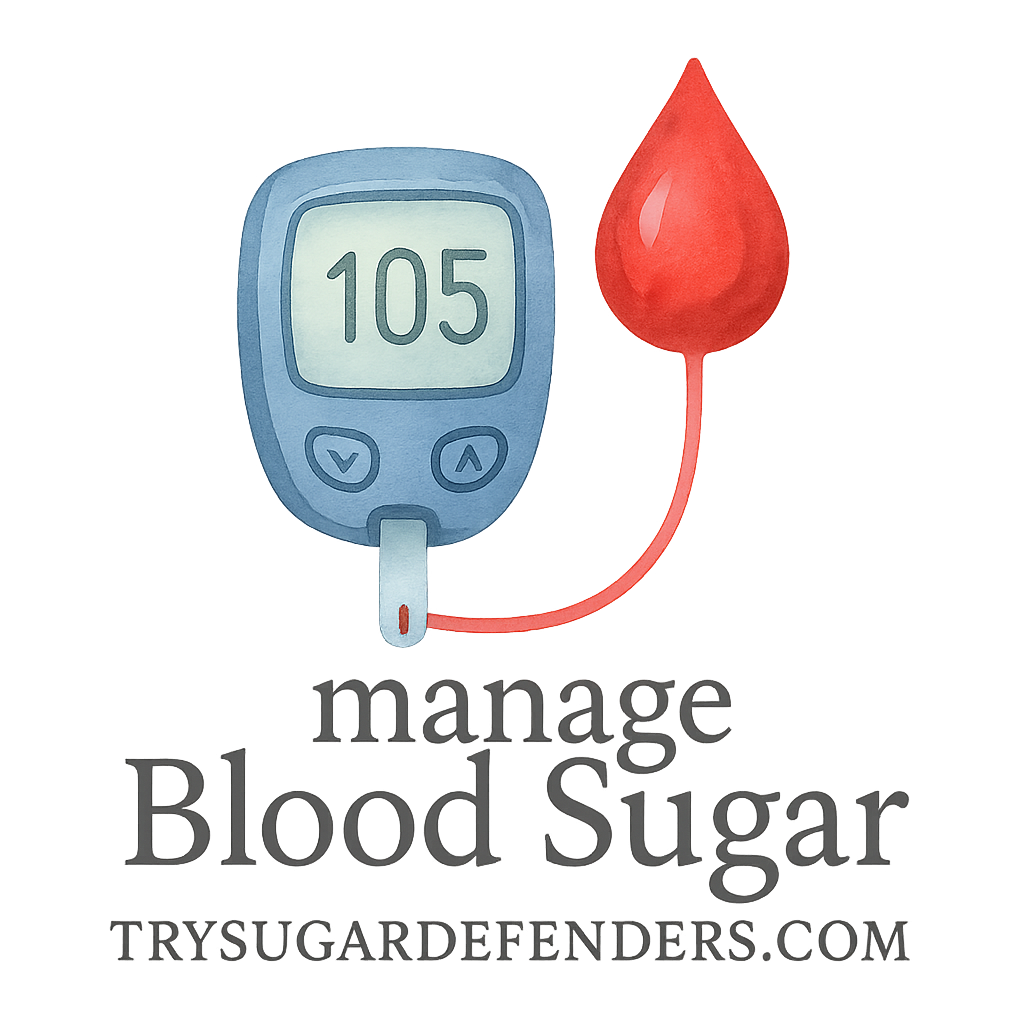Getting better sleep isn’t just about waking up refreshed — it’s also a secret weapon for blood sugar control. Yep, the way you sleep can directly affect how your body processes glucose. In this post, we’ll unpack six powerful sleep strategies that help maintain blood sugar balance, and trust us, they’re easier to adopt than you might think.
Let’s get comfy and dive in.
Why Sleep Matters for Blood Sugar Balance
Most people know that diet and exercise impact glucose levels, but sleep? That’s often overlooked — and that’s a big mistake.
The Connection Between Sleep and Insulin Sensitivity
When you sleep, your body is hard at work restoring balance. One of those key tasks? Regulating insulin sensitivity. Poor sleep can reduce your body’s ability to use insulin efficiently, which leads to higher blood sugar levels — even if you’re eating clean.
According to studies, even just a few nights of poor sleep can cause insulin resistance — the gateway to type 2 diabetes.
Learn more about lifestyle adjustments at Exercise & Lifestyle.
How Poor Sleep Disrupts Hormonal Balance
Sleep impacts cortisol (your stress hormone), ghrelin (your hunger hormone), and leptin (your satiety hormone). When these are off, cravings spike, energy dips, and blood sugar goes haywire.
This is where our keyword kicks in — you need sleep strategies that help maintain blood sugar balance.
Understanding Blood Sugar Fluctuations Overnight
What Happens to Your Glucose Levels While Sleeping
During sleep, glucose levels naturally drop as your body uses less energy. But if you go to bed with high or unstable blood sugar, those numbers can crash or spike — both of which disturb your rest.
Common Nighttime Blood Sugar Issues
- Nocturnal hypoglycemia (low blood sugar while you sleep)
- Dawn phenomenon (early morning spikes)
- Sleep interruptions from sugar crashes
Keep an eye on these using tools featured in Monitoring & Tracking.
Strategy 1: Set a Consistent Sleep Schedule
Why Going to Bed at the Same Time Helps
Your body thrives on rhythm. Hitting the sack and waking up at the same time daily helps stabilize your circadian rhythm — and that affects how your body processes glucose.
Linking Sleep Routine to Glucose Control
Inconsistent sleep patterns can cause hormonal misfires and insulin resistance. Make a routine your best friend.
Get more insights from the Routine tag.
Strategy 2: Improve Sleep Hygiene
Create a Bedroom Environment That Promotes Sleep
Your sleep space should feel like a cave — cool, dark, and quiet. Small changes like blackout curtains, white noise machines, or even lavender essential oil can make a huge difference.
Limit Blue Light and Digital Exposure
Blue light from screens suppresses melatonin — your sleep hormone. Shut down devices an hour before bed and embrace old-school paper books.
Want to improve habits long-term? See the Behavioral & Mental Strategies page.
Strategy 3: Avoid Late-Night Eating and Sugary Snacks
How Nighttime Snacks Affect Blood Sugar
Eating sugary or carb-heavy foods late in the evening keeps your glucose levels elevated while you’re trying to rest — which interferes with REM sleep and insulin production.
What to Eat (and Avoid) Before Bed
Do Eat:
- A handful of almonds
- Greek yogurt
- A boiled egg
Avoid:
- Ice cream
- Cookies
- Chips or anything processed
For more food tips, check out Diet & Nutrition and the Diet tag.

Strategy 4: Manage Stress and Anxiety Before Bed
Use Behavioral and Mental Strategies to Wind Down
You’ve had a long day. Your mind’s racing. No wonder sleep feels impossible. This is where mental strategies shine.
Meditation, CBT, and Journaling Tips
- Try guided meditation apps
- Use cognitive behavioral therapy (CBT) techniques
- Journal 3 things you’re grateful for
Explore more on this at the CBT tag and Mental Strategies tag.
Strategy 5: Exercise Regularly (But Not Too Late!)
Why Timing Your Workouts Matters
Regular workouts improve insulin sensitivity and promote better sleep. But timing matters — intense workouts too close to bedtime may keep you up.
Best Exercise Routines for Blood Sugar Regulation
Try:
- Morning walks
- Midday strength training
- Early evening yoga
Explore fitness strategies at Exercise & Lifestyle and the Exercise tag.
Strategy 6: Consider Natural Supplements and Sleep Aids
Melatonin and Magnesium for Blood Sugar Health
Melatonin supplements can help you fall asleep faster, and magnesium can ease muscle tension. Both support metabolic health.
When to Consult a Doctor About Sleep Aids
If sleep troubles persist beyond 2 weeks, it’s time to talk to your doc. It could point to an underlying condition or a need for professional sleep therapy.
Tap into Medical Supplements and the Consultation tag for help.
How to Monitor Sleep and Blood Sugar Together
Devices That Track Sleep and Glucose
Tech like the Fitbit or CGMs (continuous glucose monitors) can help you see patterns between poor sleep and blood sugar spikes.
Setting Health Goals Using Tracking Data
Keep a log, set weekly sleep goals, and use the info to adjust food, exercise, or sleep routines.
Explore Monitoring & Tracking and Devices tag for smart solutions.
Final Thoughts on Building a Sleep Routine for Blood Sugar Control
Getting good sleep isn’t just self-care — it’s sugar care. By putting just a few of these sleep strategies that help maintain blood sugar balance into play, you can take back control over your health in a way that feels natural and sustainable.
Not every night will be perfect, but with consistency, you’ll begin to notice steadier energy, fewer cravings, and better overall glucose control.
Want to explore more? Visit Try Sugar Defenders and the Health tag to stay informed and empowered.
Conclusion
Let’s face it — managing blood sugar can feel like a full-time job. But don’t overlook the power of sleep. The right sleep habits can work quietly behind the scenes to keep your glucose levels balanced, your energy strong, and your cravings in check.
Try one strategy this week, then build from there. Your body (and blood sugar) will thank you.
FAQs
1. Can lack of sleep raise blood sugar levels?
Yes! Poor sleep increases cortisol, which spikes blood sugar levels even if your diet is clean.
2. How many hours of sleep is ideal for blood sugar control?
Most adults need 7–9 hours of restful, uninterrupted sleep to support healthy glucose levels.
3. Does sleep apnea affect blood sugar?
Absolutely. Sleep apnea reduces oxygen intake and disrupts REM sleep, which increases insulin resistance.
4. Are naps helpful for blood sugar balance?
Short naps (20–30 minutes) can reduce stress and support blood sugar balance — just avoid long or late naps.
5. What’s the best bedtime snack for blood sugar?
Try protein-rich, low-carb options like a boiled egg or a small handful of nuts.
6. Should I avoid working out at night to help sleep?
Yes. Intense workouts after 8 PM can interfere with your ability to fall asleep and keep blood sugar stable.
7. Where can I get more information about monitoring my progress?
Check out Monitoring & Tracking and browse our Plan and Guide tags for actionable steps.


